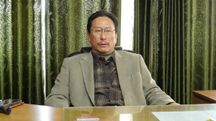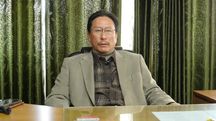Nagaland University secures patent for eco-friendly hydrogel electrolyte for next-gen energy storage
Nagaland University patents eco-friendly hydrogel electrolyte to enhance energy storage safety and efficiency. This marks a key advancement in sustainable energy technology in India

Researchers at Nagaland University have developed and patented a biodegradable gelatin-based hydrogel membrane electrolyte, offering a safer and more sustainable alternative to conventional electrolytes used in supercapacitors.
Supercapacitors, known for their rapid charging and high energy output, power devices ranging from electric vehicles to medical equipment. The newly developed material aims to address the safety and environmental issues linked to traditional liquid electrolytes, which can leak, corrode components, and pose ecological risks.
The research, published in Materials Today Chemistry, a reputed peer-reviewed international Q1 journal, represents a significant step toward greener energy storage solutions. The innovation — termed a “KI-doped glyoxal-crosslinked gelatin hydrogel membrane electrolyte” — combines gelatin, a naturally biodegradable protein, with glyoxal, a crosslinking agent that enhances flexibility, and potassium iodide, a dopant that improves ionic conductivity.
“The result is a semi-transparent, flexible hydrogel that safely conducts ions and maintains stability over thousands of charge–discharge cycles,” said Duangailung Kamei, a research scholar at the university. “It holds the potential to have a great impact on sustainable energy storage, particularly in electric vehicles, medical wearables, and portable electronics.”
The team, supported by funding from the University Grants Commission, the Science and Engineering Research Board, and the Ministry of Tribal Affairs, is now working to optimise the material’s composition to further boost energy density and device lifespan. Future plans include scaling up production and integrating the hydrogel with commercial-grade electrodes for real-world testing.
Nurul Alam Choudhury, assistant professor in the Department of Chemistry, said the development of biodegradable, redox-active solid electrolytes marks “an important step toward eco-friendly, high-performance energy storage systems compatible with renewable energy.”
He added that the hydrogel’s high water absorption — up to 717 per cent — and its ability to power LED lamps for extended periods demonstrate its practical potential. “This technology could play a key role in electric mobility and green energy applications, aligning with India’s sustainable development goals,” Choudhury said.
Copyright©2025 Living Media India Limited. For reprint rights: Syndications Today









